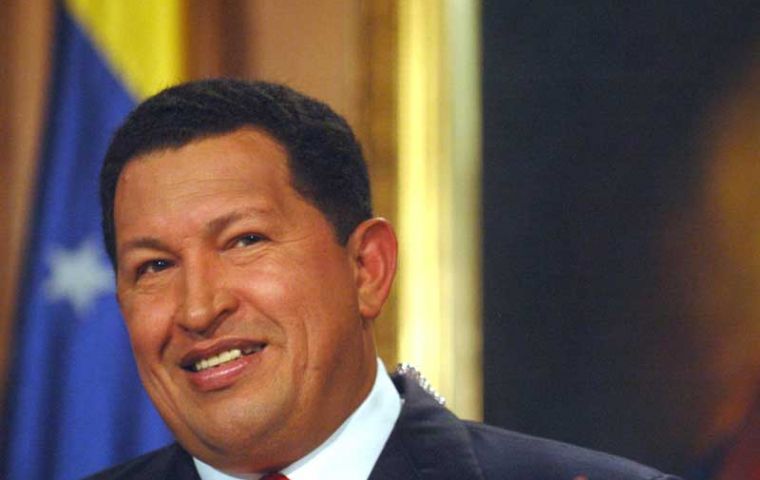MercoPress. South Atlantic News Agency
Venezuelan municipal elections, key test for Chavez “revolution”
 Pte. Chavez is not in his best moment
Pte. Chavez is not in his best moment Sunday's elections in Venezuela will be a key test for President Hugo Chavez a year after voters defeated his effort to change the constitution which was targeted to ensure his XXI Socialist-Bolivarian revolution.
Voters narrowly rejected the president's proposal last year to scrap term limits (indefinite re-election) and intensify his control over government and society, but the Chavistas hope to put the constitutional amendments to another vote next year. Venezuelans vote on Sunday in nationwide elections for governors and mayors in 22 states plus the crucial federal district of the capital Caracas. President Chavez's Socialist United Party, PSUV, is expected to hold most states and cities but may lose a handful of posts as voters reject crime, corruption and inefficiency. Bigger losses would be a blow to Chavez, who not only faces a more challenging opposition since it involves more domestic affairs disputes but also because the falling price of crude will necessarily threaten his social programs and the whole structure of a government riddled with corruption, mismanagement and waste. The most important races are in the capital Caracas, the densely populated, oil-producing state of Zulia and the coastal state of Miranda that includes swathes of the capital's metropolitan area. Zulia is currently governed by Chavez's main opposition rival Manuel Rosales, who came a distant second in a 2006 presidential vote. Chavez has accused Rosales of money launderer and involvement in assassination plots and has promised to arrest him following Sunday's election. Rosales is now running for mayor of Zulia's capital Maracaibo and the current mayor, a Chavez loyalist, is in a tight race to take the governorship from a Rosales ally. In Caracas Aristobulo Isturiz who led street protests that restored Chavez to power after a 2002 failed coup faces Antonio Ledezma, a hard-line anti-Chavez politician who has boycotted elections in the past. The vote is likely to favour Chavez, especially after the opposition's leading candidate for the post Leopoldo Lopez was disqualified over corruption charges in a move condemned by rights groups. Miranda state is ruled by one of Chavez's closest aides and ex-vice president, Diosdado Cabello, who is up for re-election but he faces a serious challenge from an ambitious young politician, Henrique Capriles. Another populous state, Carabobo, has turned into a battleground where a colourful former late-night talk show host and "Chavista" accuses his rival, a dissident former Chavez ally, of links to cocaine traffickers. Finally the Chavez family could loose control of their home state of Barinas, currently governed by the president's father. If so this could be an iconic blow for the president who has campaigned vigorously in hi state.




Top Comments
Disclaimer & comment rulesCommenting for this story is now closed.
If you have a Facebook account, become a fan and comment on our Facebook Page!